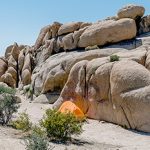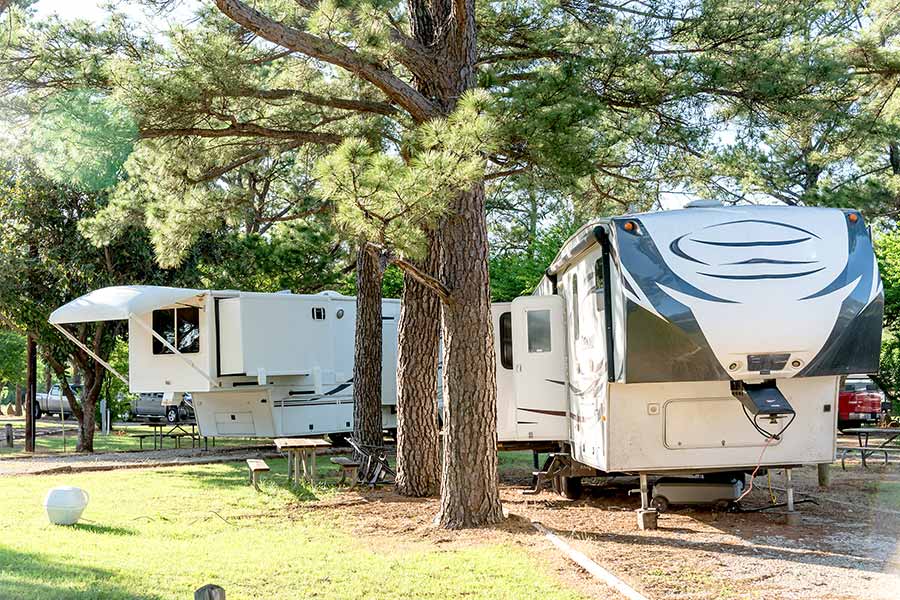
Camping is an adventurous and exciting way to explore the great outdoors. Whether it’s a weekend away with friends or a family vacation, camping is a wonderful way to disconnect from the world and enjoy nature. But as any regular camper will tell you, camping is not cheap, and campgrounds often seem to charge hefty fees.
It may feel like nature should be free or at least cheap, but the reality is that running a campground is more expensive than you might think. In this blog post, we’ll delve into the factors that contribute to the cost, so next time you’re setting up your tent or parking your RV, you’ll have a newfound appreciation for the experience.
What Factors Affect the Price Campgrounds Charge
Breaking down the expenditures associated with campgrounds sheds light on the necessary expenses in operating a successful facility. Each expense adds up and ultimately dictates the fee charged to campers. Understanding the factors contributing to the overall cost enables campers to see value in the fees charged and appreciate the facilities provided.
1. Purchase Cost
The initial expenditure of purchasing land for or buying an existing campground is one of the most significant. The price of land purchased depends on the property’s size, location, and features. Existing campgrounds situated in popular tourist destinations, near national parks, or bodies of water are in high demand, hence sold at a premium price.
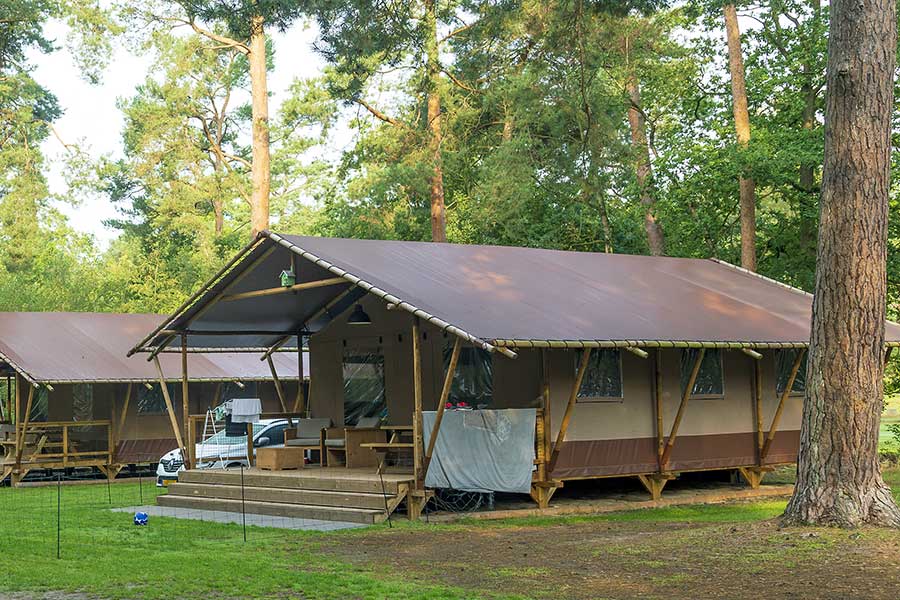
2. Maintenance
Maintaining the grounds can be expensive. They usually have several amenities, such as showers, restrooms, picnic areas, and more, that require regular upkeep and cleaning.
Additionally, they must make sure the land is well-maintained, which involves clearing trails, mowing the grass, and removing debris. Of course, all these tasks come at a price, and it’s only natural that these expenses are factored into the fees.
3. Infrastructure Maintenance
Frequent infrastructure maintenance is crucial to ensure the property is well-maintained and safe for use. Facilities such as roads, bridges, and buildings are subject to wear and tear from regular use. At the same time, swimming pools, ponds, and other water features require upkeep to maintain their appearance and cleanliness.
Routine maintenance and upgrades enable them to offer clean and safe facilities, making the camping experience pleasant for guests. However, substantial expenses are associated with keeping these features in good working order.
4. Maintenance Equipment
Maintaining a campground requires using various equipment, including mowers, trimmers, tractors, and other groundskeeping tools. Acquiring and maintaining this equipment can be a significant expenditure.
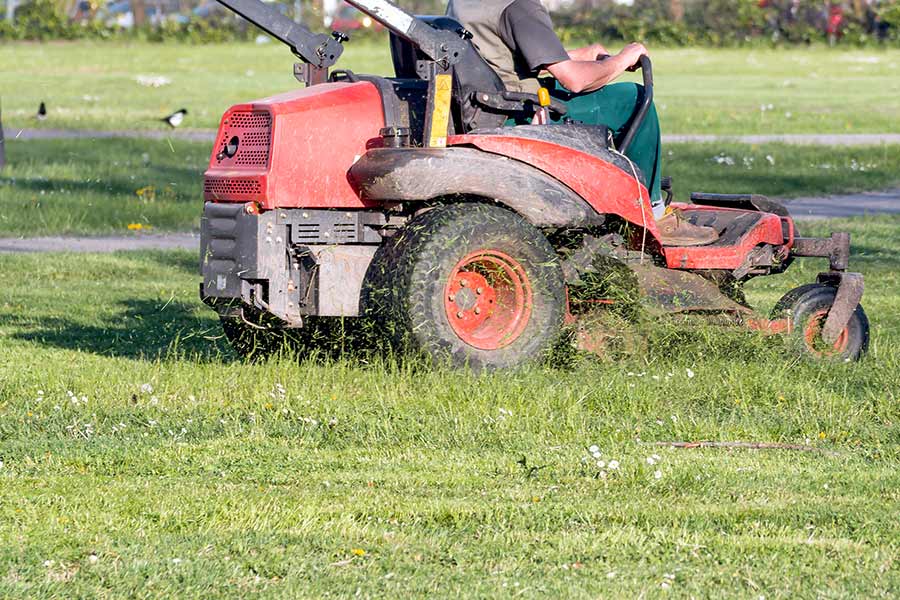
Moreover, personnel with the requisite skills are needed to operate and maintain these tools, which translates into further expenses. These costs can drive up the overall expense of operations and, consequently, increase the price you are charged.
5. Utilities
The cost of providing utilities to campers is another factor. Many offer water, electricity, and sewage, which can be expensive to provide and maintain. As a result, utilities are another outlay factored into the fees.
6. Staffing
In addition to utilities and maintenance, staffing is another significant contributor to the overall expenses. Many employ staff responsible for managing the facility, providing security, and assisting campers with their needs.
As a result, the expense of staffing can add up fast, particularly at larger ones or during peak seasons, where more staff members are necessary to cater to the influx of campers.
Other Posts of Interest
- 19 Natural Fire Starters – Get Your Fire Going Easily
- 9 Benefits Of Using A Portable Fire Pit For Camping
- Can You Start A Campfire With Gasoline?
- 19 Tips For Spotting Wildlife While Camping
7. Property Taxes
Property taxes are another significant expense. They require large tracts of land to accommodate camping activities, and the associated property taxes can be substantial.
These taxes are levied by the state, county, or municipal governments and are calculated based on the value of the land and improvements thereon. The assessed value of the land and facilities typically fluctuates based on market conditions, location, amenities offered, and other factors. They are a crucial contributor to the overall operating cost and are factored into the fees charged to campers.
8. Insurance
Campgrounds inherently present some risks, from property damage to accidents and injuries. Therefore, having adequate insurance coverage is necessary to protect the business against the financial implications of liability claims.

Insurance premiums can vary depending on several factors, including the size, the number of staff employed, the types of amenities offered to campers, and the number of campers expected to use the facility during the year.
Campgrounds typically are required to carry a mix of different types of insurance policies, including liability insurance, workers’ compensation insurance, property insurance, and auto insurance.
- Liability insurance covers accidents and injuries on the property, including slip and fall accidents or any other incidents that may result in injury.
- Workers’ compensation insurance covers injuries or illnesses employees suffer while on the job.
- Property insurance protects physical assets like buildings, equipment, and other structures.
- Finally, auto insurance covers vehicles the campground uses, such as maintenance vehicles or RV rental fleets.
Insurance adds up quickly and is necessary for running a successful operation.
9. Location
It’s essential to understand that fees can vary significantly based on location and demand for camping in the area. For example, campgrounds situated in popular tourist destinations or near major cities are in higher demand. Therefore, the fees will usually be higher due to the location’s popularity. Furthermore, the extent of amenities offered or the size of the camping areas may also directly impact the fees charged.
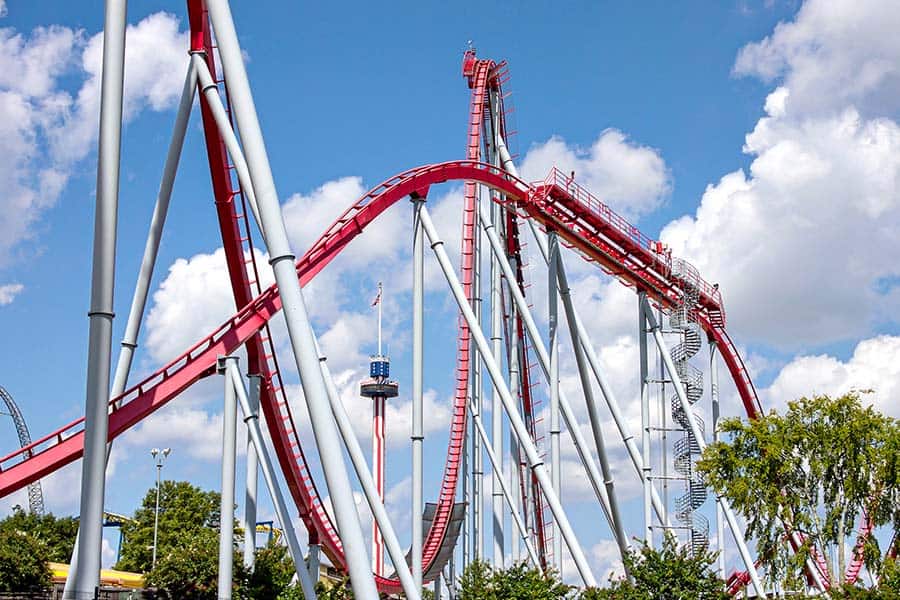
11. Profit
Campgrounds are businesses, and like any business, their goal is to make a profit. Therefore, the fees must provide an income for the owners who operate the campground so that they can take care of their families.
In many locations, the weather hinders monthly income, and the camping season tends to be in the nicer months, limiting the operating hours and leading to higher pricing. So for the owners to make a living, a profit must be figured into the equation.
In order to provide a great camping experience, it is vital that the business side is taken into account, and campgrounds aim to make a profit while finding the right balance between cost and quality offerings.
So why do campgrounds charge so much? Campgrounds may seem to be expensive, but they must charge fees to cover the cost of providing facilities, amenities, and services such as staff, maintenance, utilities, and upkeep. They must cover these costs to stay open and make a profit to sustain operations and invest in better facilities and services.
The Bottom Line
Ultimately, the cost of running a campground is high, and these expenses are passed on to campers. However, without regular maintenance and upgrades, they couldn’t provide the high-quality facilities that make camping such an enjoyable experience.
The bottom line is that there is no single formula to determine the price campgrounds charge, and several variables have a role to play. So, next time you see higher-than-expected fees at your favorite campground, consider the expenses of keeping it up and running!




